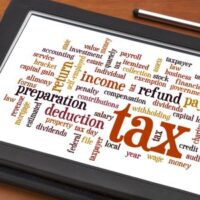A Few Important Tax-Related Tips for Gig Economy Workers

Employment as a gig economy worker is becoming ever more popular as a flexible way to earn some extra money. Whether someone is working for a ride-sharing company, renting a room, delivering food, or working for a company that outsources its labor, he or she will need to keep track of the funds they earn and report them on a tax return. Read on to learn more about the tax-related implications of working in the gig economy.
Gig Economy Employment
Also referred to as access economy, gig economy employment provides on-demand work, goods, or services. Many engage in gig work on a part-time basis, while for others it is a full-time job. In either case, income from gig work, like selling goods online, or providing a ride-sharing service, is taxable. This means it must be reported as income on a worker’s return. Taxable earrings include payments made by credit card, cash, or even an exchange of property, goods, or virtual currency.
Paying Taxes as a Gig Economy Worker
Income earned from a gig economy job is still taxable, even if a person doesn’t actually receive a Form 1099-MISC, a Form 1099-K, a W-2, or some other form of income statement from an employer. Those who work as gig economy employees may have taxes withheld from their pay. This, however, is not true for workers who don’t qualify as employees. In these cases, a gig economy worker has two options:
- Filling out and submitting a Form W-4 for another job where he or she is considered an employee (requesting that more taxes be withheld from those paychecks); or
- Making estimated tax payments on a quarterly basis to cover Social Security, Medicare, and self-employment taxes.
Both of these options will require a person to keep proof of his or her income and expenses. Some gig companies even keep this information for the employee and send a W-2, Form 109-MISC, or Form 1099-K at the end of the year. Even in these cases, however, it’s a good idea for workers to keep track of income and expenses on their own. This could include everything from copies of receipts and invoices to prior tax returns and even bank statements. To learn more about reporting your own gig economy income, or for assistance making an estimated tax payment, please reach out to our legal team today.
Contact Our Florida Tax & IRS Attorneys for Professional Assistance
If you are a gig economy worker and have questions about your tax responsibilities, please call experienced CPA, former FBI Special Agent, and dedicated Florida and nationwide tax and IRS lawyer Ronald Cutler, P.A. for help. Those who fail to report their income or to pay estimated taxes (if they qualify as self-employed) could end up facing significant penalties and fines. To avoid this, set up a free one-on-one consultation by calling our office at 386-490-9949 or by sending us an online message.
Sources:
irs.gov/newsroom/info-to-help-gig-economy-workers-stay-on-top-of-their-tax-responsibilities
irs.gov/pub/irs-pdf/p5369.pdf



